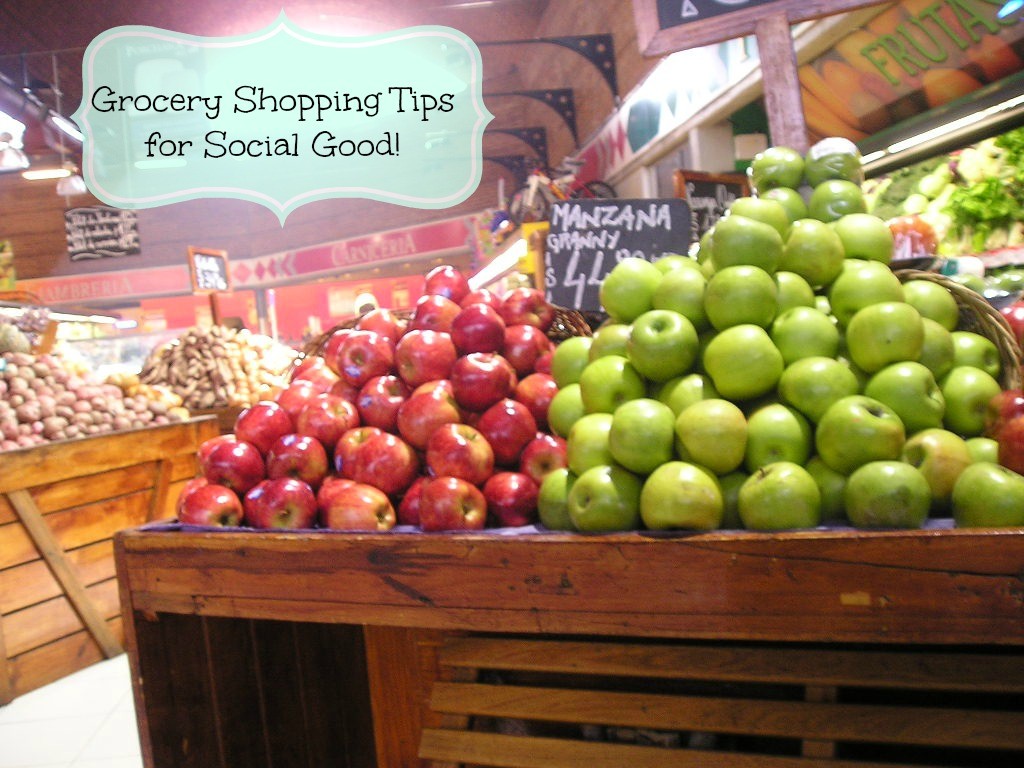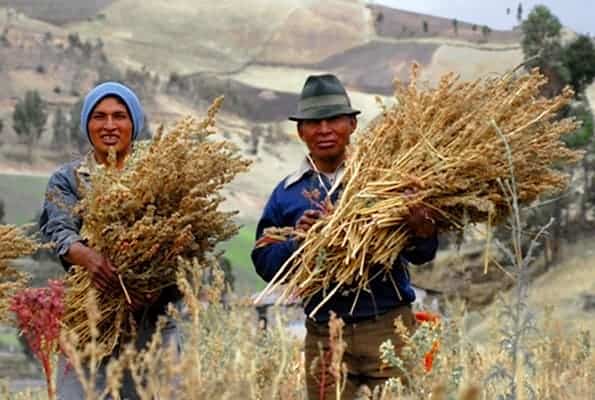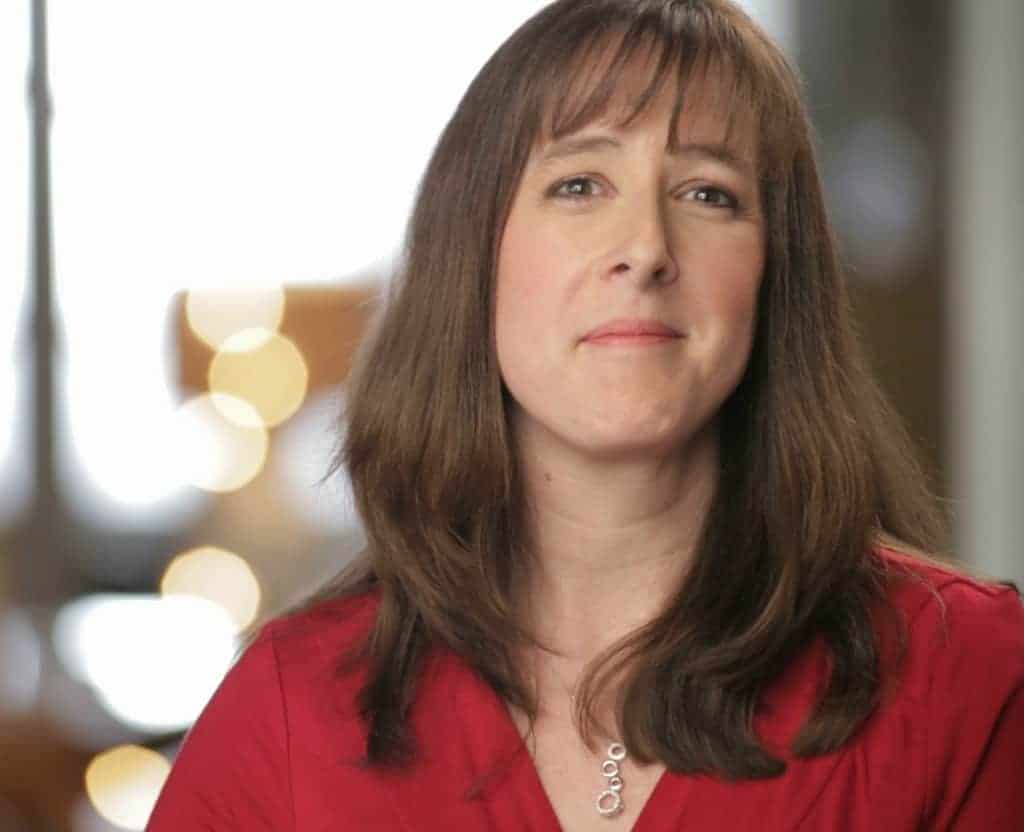As I sit here typing this blog post, I have just returned from yet another grocery shopping trip. No matter how hard I try, I seem to spend an awful lot of time there. Either we are out of something completely vital (heaven forbid my daughter run out of yogurt!) or I have a recipe I want to make and am missing one important ingredient. I know, I really need to plan my shopping better. Just consolidating my trips to the grocery store would save me a lot of time, money, and wear and tear on my car. Not to mention, reducing my carbon footprint! Small actions that we take every single day make a big difference. Since grocery shopping is something we all probably do a lot of, I thought I would share a few grocery shopping tips that could help bring about social good in our own communities and around the world.
Posts feature partner companies & may be sponsored. Post contains affiliate links & I will be compensated if you make a purchase after clicking on links. As an Amazon Associate I earn from qualifying purchases.
 Grocery Shopping Tips to Bring About Social Good
Grocery Shopping Tips to Bring About Social Good
Posts feature partner companies & may be sponsored. Post contains affiliate links & I will be compensated if you make a purchase after clicking on links. As an Amazon Associate I earn from qualifying purchases.
First of all, what exactly is ‘Social Good’? It has become a popular term but have you ever stopped to think about what it really means? Social Good is an action that provides some sort of benefit to the general public. Something that YOU do that has far reaching benefits to others. You think you are just going to the grocery store to get something for dinner, right? But the choices you make at the grocery store have consequences, both good and bad. Keep these grocery shopping tips in mind the next time you shop:
1. Bring your reusable bags: Every time I go to the grocery store I see dozens of people carrying out carts full of plastic bags. If every single person chose to use cloth bags instead, we would have a hugely positive impact on the health of our environment. Everything from toxic chemicals in our soil to the deaths of thousands of sea turtles can be attributed to our plastic bag problem. Save a sea turtle and bring your own!
2. Choose organic: Yes, I know it is more expensive than conventionally grown food. But, organic food isn’t just good for YOU and the health of the planet. The farmers who actually work the fields and spray the assorted pesticides and herbicides on that food are being exposed to some seriously harmful levels of chemicals. If you want some fairly heavy and scientific reading, check out The Health Costs of Our Food Production System. You will be glad you are not a farmer after reading it, I assure you.

✯Don’t want to miss the next post?✯
Follow Turning the Clock Back on Facebook | Twitter | Pinterest
Or join the private Facebook group for simple tips on going green!
3. Look for Fair Trade Certified: What does it mean for a product to be Fair Trade Certified? Products that have the Fair Trade Certified logo come from farmers and workers around the world who are justly compensated. That means, when they spend all day in the sun chopping organic bananas from a tree, they are paid a living wage, not just a few pennies, for their hard work. Those bananas would not be available without the help of farmers willing to do the hard work of growing and harvesting them. The least we can do as a society is make sure that they are paid a fair wage for their efforts.
4. Buy extra for someone else: Maybe you want to keep your social good close to home? There are millions of food banks around the country that would love a donation. Spend a few dollars and buy some healthy staples that you can drop off at a food bank, church, homeless shelter, or other charitable organization. I know you are in a hurry but it takes only a few minutes to fill the belly of a child who might otherwise go to bed hungry.
5. Make a donation at the register: Many grocery stores support global health and wellness initiatives around the world. Adding a dollar to your grocery bill will probably not make much of a difference to your budget. However, your dollar combined with hundreds of other people’s dollars will go a long way towards making a difference to someone else.

Whole Foods has created the Whole Planet Foundation to help improve some of the world’s poorest communities. Whole Planet Foundation’s mission is poverty alleviation through microcredit in communities around the world that supply Whole Foods Market stores with products. What is microcredit? It is exactly what it sounds like. Very small loans. A $200 loan to your average person in the US might not do much but put food on the table for a week. But in some of the poorest and most rural communities around the world, it can help someone start their own business. One person buying a few goats could turn those goats into a dairy and meat business that will support their entire family for years to come. And that $200 isn’t a handout. It is a LOAN…that is paid back as the business becomes profitable. Give a man a fish, you feed him for a day. Teach him to catch his own and you have fed him for a lifetime. Sound familiar? That is the basis for the Whole Planet Foundation microloans.
The Whole Planet Foundation currently supports 875,158 microentrepreneurs in 61 different countries around the world. They are making a real difference in the countries that actually provide them with a lot of the products they sell. Not only can you make a donation at the register for this worthy cause, but there are a number of brands that support the Whole Planet Foundation with annual contributions. You can check out their 2015 Supplier Partners and maybe make it a point to buy those brands next time you shop!
Learn more about the Whole Planet Foundation by following them on Facebook and Twitter. Next time you are at Whole Foods, make it a point to do your part to support their global anti poverty efforts!
I was invited to attend a luncheon with Whole Foods to learn about their Whole Planet Foundation but this post about grocery shopping tips for social good has not been compensated in any way.

Diane is a professional blogger and nationally certified pharmacy technician at Good Pill Pharmacy. She earned her BS in Microbiology at the University of New Hampshire and has worked in cancer research, academics, and biotechnology. Concern over the growing incidence of human disease and the birth of her children led her to begin living a more natural life. She quickly realized that the information she was learning along the way could be beneficial to many others and started blogging and freelance writing to share this knowledge with others. Learn more about her HERE.

Ugh! I always forget my reusable grocery bags, and I have about 10000 of them! Thanks for the reminder!
Great information! I love the idea of buying somethings for someone in need.
I always bring my reusable bags but had never thought about making a donation at the register. Thanks for these tips and for making me rethink how I shop!